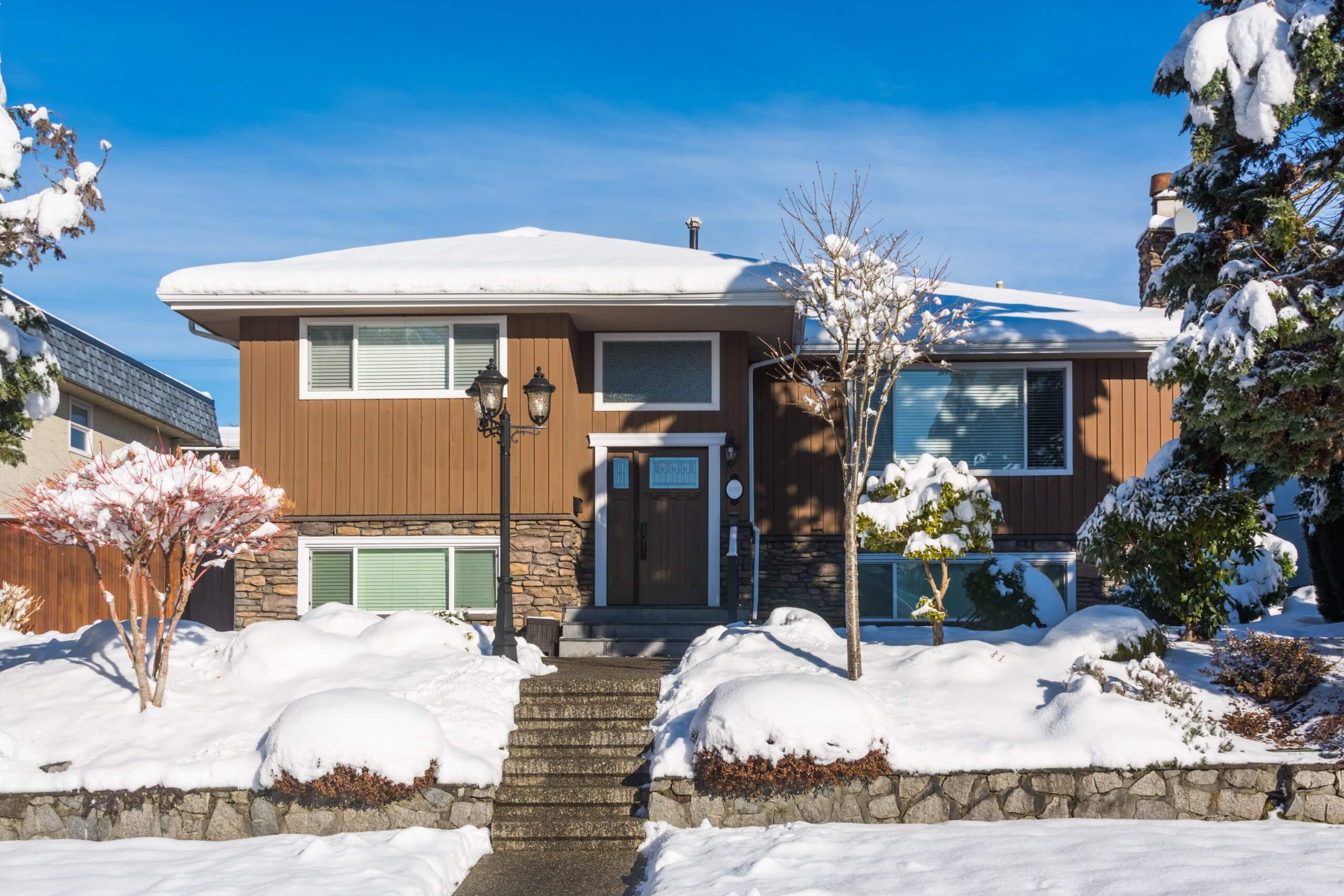Winter is a beautiful time of year, but it can be very taxing for your home’s HVAC system. Cold weather can damage outdoor units and increase strain on the air handler. Let’s take a look at several extremely common winter HVAC issues and their solutions.
4 Winter HVAC Issues
Frozen Pipes and Coils
As the temperatures plummet, snow and ice pose an enormous issue for homeowners. When pipes, coils and system parts freeze due to inclement weather, they prevent your HVAC system from creating a warm, safe and cozy indoor atmosphere. Frozen pipes and coils that experience an increase in pressure are also subject to burst, leaving you with a costly repair bill.
Decreased Airflow and Uneven Heating
During the winter, your HVAC system works overtime to supply every room in your home with warm air. With time, the air filter that protects your unit becomes clogged with debris.
A dirty air filter can decrease airflow and cause uneven heating throughout your space. This is particularly dangerous during the winter, as your HVAC system must battle both extreme weather and combat a dirty air filter to deliver warm air—it’s a recipe for system failure.
Carbon Monoxide Leaks
Carbon monoxide is an odorless, colorless gas that is toxic to humans and animals. Its undetectable nature makes it extremely dangerous.
You may experience a carbon monoxide leak due to a cracked heat exchanger. When a heat exchanger overheats due to a lack of airflow, it is more likely to crack or break. Another reason to prioritize your home air filter … the cause of an overheated heat exchanger is often a dirty air filter!
Faulty Thermostats, Pilot Lights and Heat Pumps
When your thermostat is not working properly, it cannot regulate your HVAC system. A faulty thermostat either needs to be cleaned, recalibrated or replaced entirely. If your thermostat needs to be replaced, consider upgrading to a programmable model.
 More: There are four types of thermostats. Which one is right for your home? Check out this article to learn more about the similarities and differences between each model →
More: There are four types of thermostats. Which one is right for your home? Check out this article to learn more about the similarities and differences between each model →Heaters that require natural gas or propane have pilot lights. For some furnaces, the pilot light is always on. For others, the pilot light turns on when the heat turns on. When the pilot light is dim or not on at all, the temperature in your home will drop, regardless of what the thermostat reads. Usually, faulty pilot lights are the result of a dirty or damaged flame sensor.
Ice and snow can damage exterior heat pumps, reducing their effectiveness and ability to defrost. When exterior heat pumps are unable to defrost, they are subject to various issues including coil blockage and broken fan motors.
4 Simple Winter IAQ Solutions
Indoor Air Quality Monitor
Investing in an indoor air quality monitor is the best way to keep an eye on the level of carbon monoxide in your home. Carbon monoxide is imperceptible and poisonous—a very dangerous combination. In addition to detecting a carbon monoxide leak, an indoor air quality monitor provides basic climate information such as air pressure, temperature, humidity and information about other indoor pollutant levels. Additionally, it monitors your air filter’s expected remaining lifespan.
Whole-Home Humidifier
In order to prevent the air in your home from becoming too dry, a whole-home humidifier increases the amount of water vapor in the air. As a result, the air in your home becomes moist and warm, creating a more comfortable atmosphere. When the air in your home is properly humidified and warm, it’s difficult for pipes and coils to freeze and burst. Installing a whole-home humidifier is an excellent way to avoid frigid indoor temperatures and costly repairs as a result of inclement weather.
Bonus Tip: We often mistake dry air for cold air. We turn on the heater, hoping to create a warm and cozy atmosphere. The air may become warmer, but it also becomes drier. Still feeling cold, we turn the heater up several degrees. A dangerous cycle begins. In the end, we run our heaters into the ground trying to achieve a warm and cozy atmosphere, while actually further drying out the air in the process. Eventually, this leads to an overworked heater. Installing a whole-home humidifier is also an excellent way to avoid dry air disguised as warm air and system failure as the result of an overworked heater.
Highly-Rated MERV Air Filters
The easiest fix for decreased airflow or a clogged air filter is to replace the filter with a new one. But some air filters are stronger than others. Your home air filter choice matters.
In order to protect your family, invest in an air filter with a MERV 11 or MERV 13 rating. Air filters with a higher MERV rating are better able to capture pollen, dust mites, mold spores, bacteria, viruses and the like. In addition to investing in a high-efficiency air filter, be sure to change your air filter regularly. How often you change your air filter depends on various factors such as the number of occupants and pets in your home. Regardless, getting into a routine is critical.
 More: If you’re struggling to decide how often to change your air filter, take a look at our simple factor and replacement range chart. Getting into a filter routine can make all the difference. Read more →
More: If you’re struggling to decide how often to change your air filter, take a look at our simple factor and replacement range chart. Getting into a filter routine can make all the difference. Read more →Routine HVAC Maintenance
Nothing beats a check-up! Whether or not you’re concerned about your thermostat, pilot light, heat pump, home airflow or indoor air quality, schedule a routine HVAC maintenance appointment!
Ideally, your HVAC system should be assessed twice per year, near a seasonal change. A technician will evaluate and clean your unit, and make you aware of any necessary repairs. Routine inspections circumvent emergency repairs, which are very expensive. This simple step will help you avoid common winter HVAC issues and save you a bundle of money in the long run. Also, take the opportunity to discuss possible IAQ home improvements with a professional.
Prepare Your HVAC System
In order to avoid these four common winter HVAC issues, choose to act and intervene in your home, invest in quality IAQ solutions and schedule a routine HVAC maintenance appointment. Your family, your health and your HVAC system will thank you.



